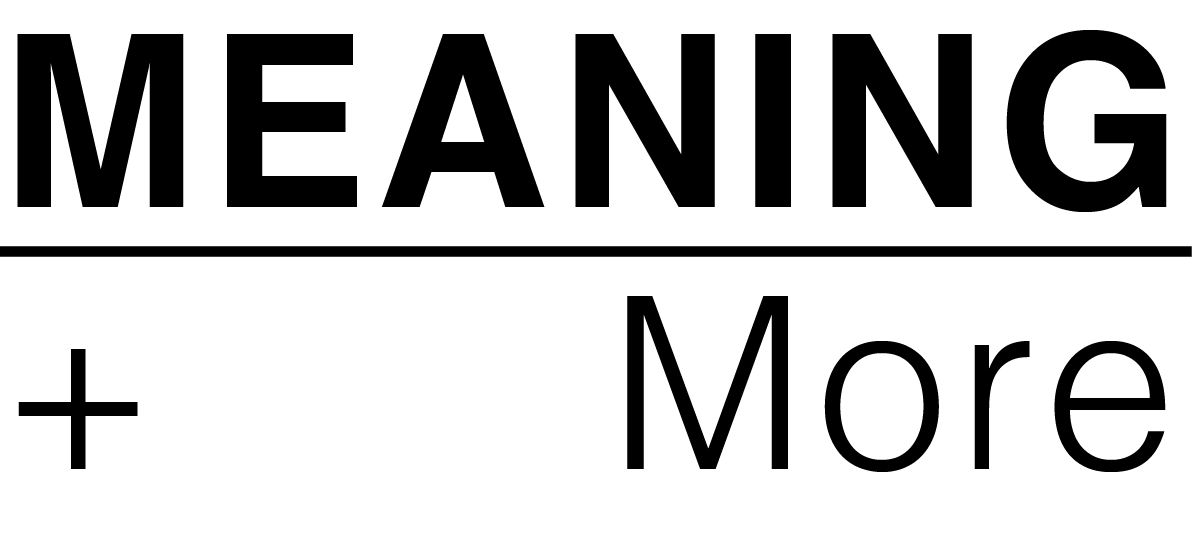From Mindset to Meaning – Foundations of Logopreneurship
Entrepreneurs who are resilient have a strong mindset. Entrepreneurs who stay resilient have a strong sense of meaning.
They are called logopreneurs.
What keeps them strong and successful is their deep sense and experience of meaning as well as the importance of values for their business and everyday life. They build their life on personal values. This also keeps them healthy, physically and mentally.
In leading their life freely and responsibly, and by consciously dealing with their failures and limitations, logopreneurs not only develop their business, but become entrepreneurs of their future. They shape the future today.
Logopreneurship is the conscious process of responsibly leading one‘s business and/or everyday life based on values and the will for meaning, even and especially in the face of risks and challenges.
From mindset to meaning – Foundations
For years, the ability to become an entrepreneur was thought to be linked to individual personality traits that people simply have (or don’t have). But it’s more likely to be linked to a particular way of thinking. There is lots of research about what constitutes such an entrepreneurial mindset. While such a cognitive perspective can help you on your way to becoming an entrepreneur, it’s not sufficient to keep you going and stay determined. What you really need to develop, build and run your own business is a strong motivation. Guess what!
The famous psychologist Abraham Maslow (you may know him from his pyramid of needs) and the psychiatrist Viktor Frankl agreed on the following: meaning is the strongest motivation in life.
The good news? Frankl, psychiatrist and also the founder of logotherapy (meaning-centered psychotherapy), said that we can always find meaning in life. The “bad” news? We are responsible for it. It’s up to us to answer life’s questions, not the other way round. It is your decision to fulfill this responsibility.
It is important to note that meaning can never be “given” or “provided” by someone else. Yet, an entrepreneur can, for example, create an environment where he supports his employees to find meaning themselves.
Following your personal sense of meaning, you’re on the best way to becoming a logopreneur. Still, the question remains: how do we find meaning in life, especially in difficult times?
The value of (your) values
According to Frankl, values are opportunities to realize meaning. There are even different categories of values, hence, different potential sources of meaning: creative (doing or creating something meaningful), experiential (experiencing something or someone as meaningful), and attitudinal values ((re-) discovering a meaningful attitude towards something, they may not be able to change).
Following this line of thought, entrepreneurs themselves can experience meaning in three ways according to the different types of values:
- First, by realizing creative values, e.g. by providing a service, innovating a product, or managing a project. Sustainability criteria can form the basis for this.
- Second, by realizing experiential values, such as conversations with a colleague, enjoying lunch break with the whole team or receiving support in a difficult situation. It can also be a successful, high-results meeting.
- Thirdly, by (re)discovering a meaningful attitude towards something that they may not be able to change, e.g. by accepting economic instability or tensions in society (realizing attitudinal values) or from framework conditions that they cannot change themselves.
Becoming and staying resilient
In general, it is important that we don’t focus on one value only. As a logopreneur you are able to identify and actively integrate different sources of value in your business and life. It is not recommended to base your motivation on only one source of meaning (aka value), e.g. the great team spirit, the innovative character or the product.
Rather, logopreneurs integrate quite different sources of meaning, such as the product’s contribution to society, the feeling of solidarity within the team, or the resilience to remain determined even in times of uncertainty.
Dreams vs. possibilities
While this all sounds great (possibly), but you, the reader, may be wondering what to do when you are constrained by external conditions, such as volatile markets or regulatory requirements. How do you fulfill your responsibility to realize values and experience meaning when there are so many constraints? The key is to identify and act within your areas of freedom.
This means first of all gaining clarity about those aspects and areas of your life where you can actually make a difference, however big or small. Once identified, consider what the next step is that you can take, given your time, financial and personal resources. Secondly, it’s important to identify the aspects that you can’t change (any more), even though they may still bother you. Frankl reminded us that we can’t always change the things around us, but we always have the freedom to change our attitude to the situation.
As a logopreneur, you distinguish between the realm of freedom (change is possible) and the realm of fate (change is not possible – no more).
Wherever change is possible, it’s up to you to make a conscious decision and take the necessary steps to move in the direction you want. It helps to remember that you are human, which means that you have both the freedom of will and the responsibility to act on it.
Shifting perspectives from “why?” to “what for?”
Where change is (no longer) possible, you move into acceptance and train to change perspectives. It can be helpful to ask „what for?“ instead of „why?“. While the question „why?“ often keeps us stuck in the past and puts us in a rather passive position, the question „what for?“ opens up a perspective for the future. As a logopreneur, you can ask yourself „What does this challenge me to do now?“ and use the answers as a way forward, as an active creator of your business (and life).
In this way, you are not only equipped with a strong sense of responsibility, but you also gain resilience in conditions that are often complex and uncertain.
Impact
The impact of an entrepreneurial mindset built on logotherapeutic principles yield results on different levels of the entrepreneur’s environment, not least because “[T]hose who demand performance must offer meaning” (Böckmann, 1984, title; own translation). It all comes back to leading yourself and therefore being able to lead others.
On a personal level, a logopreneur whose mindset is rooted in values and meaning is better equipped regarding setbacks, disappointments or economic downsides than entrepreneurs without this grounding. Academic results further indicate that a sense of purpose in life is also beneficial to overall health. It is possible to find meaning in creative endeavors, special experiences and even in suffering, which in turn leads to greater resilience over time.
Looking at a logopreneur’s leadership qualities, he is able to offer spaces for personal discovery of meaning to his employees, while successfully contributing to the business. Research shows that leaders can actually support their employees’ positive work experience and personal well-being in helping them connect with a bigger purpose.
On a systemic level, this philosophical, even psychohygienic, view influences humanity. Each individual is responsible for his or her own attitudes and actions. Not only the immediate environment of the individual, but also broader relationships of a logopreneur are of sustainable importance.
In a nutshell
-
In addition to having a strong entrepreneurial mindset, logopreneurs build their business and their lives on a deep sense of meaning, a trust in meaning. This is the strongest motivation.
-
Values serve as sources of meaning, and a logopreneur can realise different values through their business, making them particularly resilient in turbulent times.
-
The ability to distinguish realistic possibilities from impossible dreams and the responsibility to take action is what characterises a logopreneur.
-
The question „what for?“ (not „why?“) is what guides the logopreneur through daily life and critical phases, thereby actively creating his future.
-
When the logopreneur applies the core principles of logotherapy to his business and his life, the effects will be felt on several levels, namely personal, social, systemic.
© Dr. Nina Bürklin, 2023.

